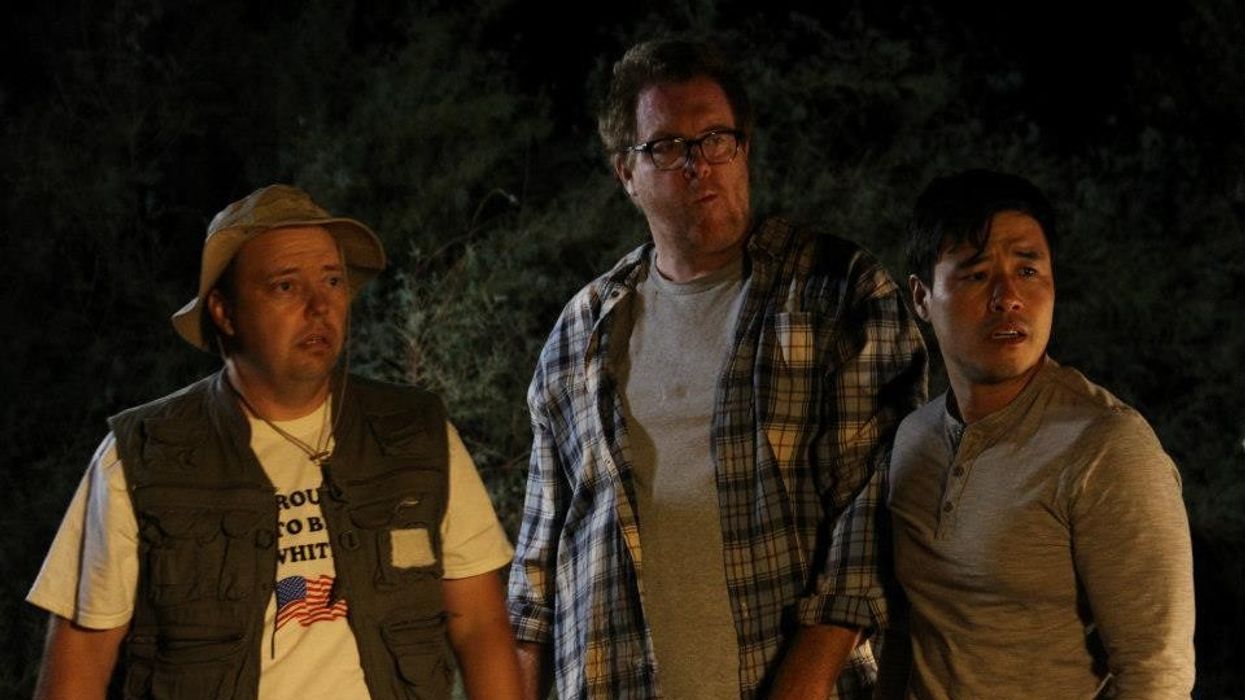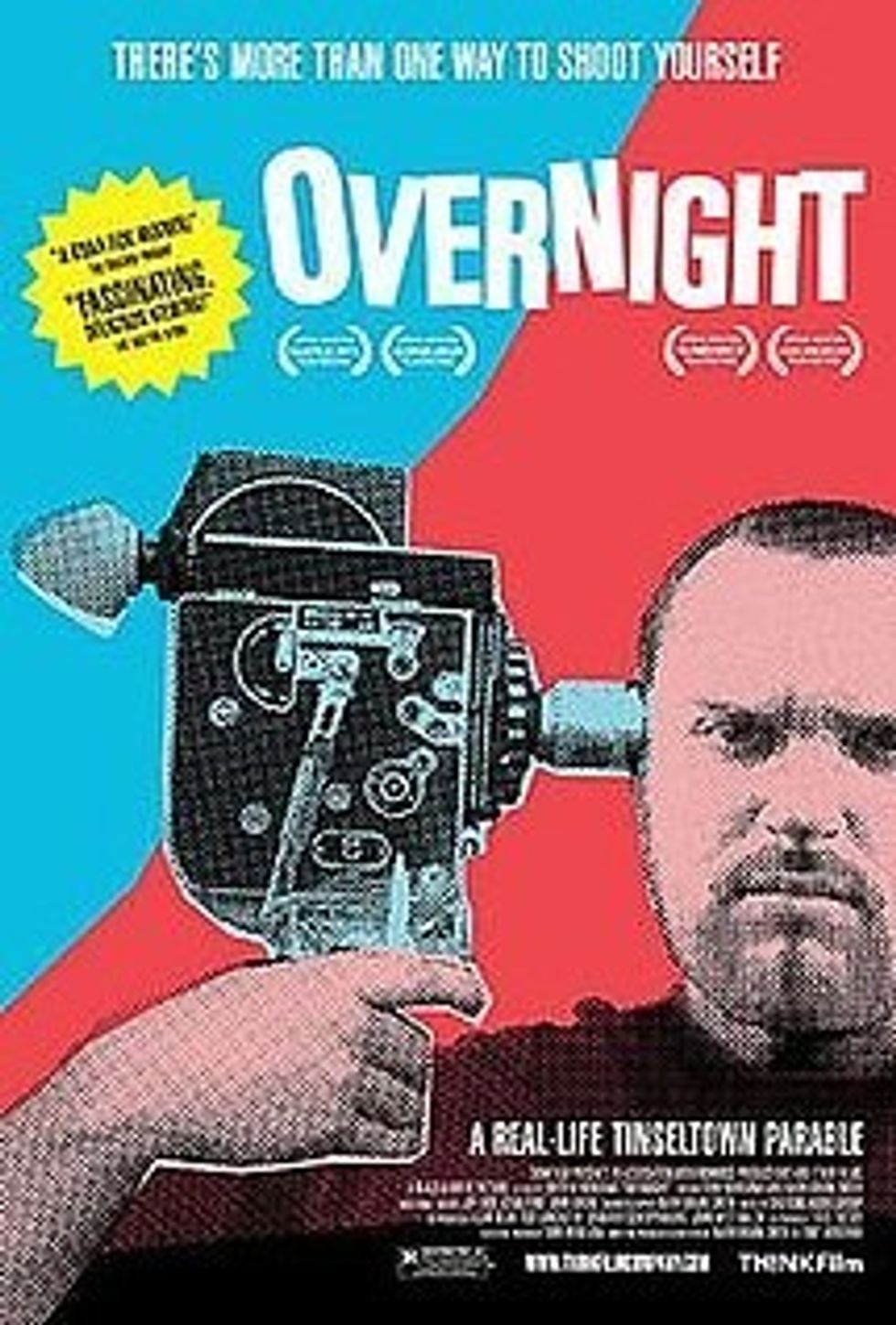So You Got Rejected By Sundance. Now What?
When we create, we often target the biggest fish. When reality crushes our dreams, what we do next defines us.

Been there? Me too.
I spent years on a labor of love indie feature. Developed it, wrote it, pitched it, went the indie production route, poured sweat, blood, and tears into it. Finished it. Submitted it. Hoped. Dreamed.
And got rejected.
Film festivals create more "losers" than winners. The entertainment industry doesn't help develop talent from within, it just moves on. We don't even get feedback from a Sundance or a SXSW. Maybe they stopped watching in the first 10 minutes. Maybe they had something "too similar" that they were slating for another reason.
We could have been very close or not close at all, and even though we'll keep wondering, it doesn't matter. What we do next does.
Today I want to talk about the benefits of rejection on the whole, but specifically how you can move on from the rejection by the major festivals.

Failure is the Best Way to Learn
We hear this over and over in our lives and yet it doesn't take the sting out. Nor does any business or industry particularly care. But what does this really mean?
Let's turn to a sports legend and his advertising campaign for a little bit of a deeper look at what this means:
Before you just say this is the MJ equivalent of the Gretzky quote meme, that you miss all the shots you don't take, let's just appreciate the genius in marketing from Weiden+Kennedy, Nike, and Michael Jordan.
The man most associated with "clutch" is talking about how much he has choked.
The idea of failing here is that it's not a finality, and it doesn't have to define you to others. But maybe it should define you for yourself.
What does that mean?
We spend a lot of time thinking about how failure is perceived by those around us. But the truth is most people don't care if you've failed. They don't even notice. There is no list of shorts and features that DIDN'T get into Sundance.
Even those close to you or those who toiled on the work with you don't want to dwell on the failure. They will want to move on to the next thing.
The person who SHOULD think about the failure is just you...not in a way that beats yourself up, but in a way that motivates you. In a way that helps you see why, or helps you get better.
What's the most obvious way to do this?
Who Did Succeed? And Why?
It's easy to reflect on the situation and draw a quick conclusion. The year my horror-comedy was rejected from SXSW (really more my target than Sundance but hey, I'd have been happy with Sundance too!), another horror-comedy was on the slate. It had a major name attached and had a much much bigger budget. It was kind of the "easy way out" for me to just say "well I never stood a chance against that." and then fall into another trap.
"The industry is only concerned with money."
"The festivals only want to premiere major films now."
"There is no room for creative artists like me!"
Hold up. That's a LITTLE much. I should have watched the movies that made it that year and asked myself "what do these do that I didn't do" and considered the things within my power to change. Instead, I just slammed my head against the brick wall of things I could not change.
Wanna know the funny irony?
My movie DID have a name in it. I just cast him before he was a name. And within the course of a year his name started to blow up, and that's part of how my film eventually got distribution.

Didn't get into Sundance. Or SXSW. But it was on TV all over the world.
So did I fail or succeed?
People around me saw the film on TV, on streaming platforms, reviewed in the Hollywood Reporter and they "perceived success." I never really did. The film didn't achieve what I had wanted it to. Its flaws that held it back were a result of choices that were made based on limited resources, but I had time to think it over. What could I have done differently? How would I approach the process in the future?
The "failure" was a step in my evolution. What you do when a failure defines your future. It's an opportunity.
We think of success as an opportunity. Right? But in some ways, success is a dead end.
Why?
Success Can Be a Trap
I've been to Sundance and SXSW. One of the things I notice is that having a feature or short at one of those festivals doesn't necessarily mean much for the creatives.
It's a feather in your cap, but what happens when your screenings don't pull big audiences? When you don't win the grand jury prize? When your film doesn't inspire a bidding war? When you leave without a deal in place?
Are you much better off than the people who didn't get in? Maybe a little. But these are actually other failures, right? And what you do with THOSE failures will also define you.
What if you DO win the grand jury prize and you get major distribution?
You WON!
But what if your film flops and nobody wants to work with you?
OK... what if your film is a huge box office smash. And it's a critical darling. And you win an Oscar.
You have huge offers for your next project! Any star you want! And you make the movie.... and everyone hates it. Are you a hack?
Time to hang it up?
What you do THEN defines you.
See no matter how you play out the story, failure will find you. In ways both big and small.
Lots of filmmakers and audiences don't know that when Steven Spielberg (maybe one of Hollywood's most consistently successful filmmakers EVER!) made 1941 it flopped big time. And the movie is legit awful. See it if you haven't.
Spielberg was actually in a tight spot after 1941. Imagine! What got him back on the horse?
He had a chat with his buddy George Lucas about wanting to make a Bond movie, Lucas told him about his idea for an adventure serial and they made Raiders of the Lost Ark, which is really one of Speilberg's masterworks (and IMO one of the very greatest movies ever).
It came from failure. It came from a man having failed on a very large scale and reassessing.
Don't believe me that failure will find you? And that when it finds you it's actually the opportunity, not the dead-end? Then believe Steven Motherfucking Spielberg!
But I Still Didn't Get into Sundance
Yeah, pep talks and history lessons don't change reality. You are still unlikely to get into Sundance every single time you apply.
The key is to think about what you can change and control and not the things outside of yourself. If the rejection process is unpleasant and not worth the work for you, you should find another path or another path within the industry. There are so many ways to be a filmmaker that don't involve or require submitting indies to Sundance. You can have a long, prosperous career and never do that once.
What you do right now is you lick your wounds. Maybe that means looking at Baby Yoda memes or writing comments on NFS articles about how stupid I am. Whatever helps you right now is worth doing.
Next, consider going to Sundance...or any festival that rejected you.
This is a HUGE one and boy do I wish I'd been told this a long time ago. You will learn SO MUCH about what DOES get into festivals by going and watching things. You might also meet people you want to work with or who want to work with you. You might even meet people interested in your project that didn't get in (or the one you want to do next).
Just go. Chances are you'll figure out very quickly WHY your film didn't get in and you'll see what does get in.
Maybe then you can start to think about what does and doesn't work in your film and what you can do, if anything, to change it.
Or maybe you're like I was and you realize maybe the major fests are not going to be the answer for this project.
What I did was I kept submitting (and spending money) until my film made its way to a bunch of smaller festivals, racked up a few audience awards, ended up getting offers from sales agents to rep it. I had to pick the best options, had a screening for distributors, got the right offer and made a deal.
It didn't change my life. But it helped my film get out there, and sometimes to this day I still get a (very small) check. People are out there watching it.
So did I fail?
On the morning of the Sundance rejection, I sure did. But why did I make this movie in the first place? Mainly so I could see the really angry tweets and YouTube reviews about how awful it was. I gotta say, there is something special about getting that sweet, sweet, internet hate.
But the key to my story is failure wasn't the end. It was the beginning of a different path. That led to more failures. And more learning.
So let's keep failing together. Why else are we here?
- What can you learn from these Sundance filmmakers? ›
- Explore the Anatomy of a Time Travel Thriller at SXSW ›
- Choosing Your Next Project & Immediate Next Steps | No Film School ›
- How to Get Your Film Into Big Film Festivals | No Film School ›
- Sundance Announces 96 Projects Ahead of Their 2025 Fest | No Film School ›












